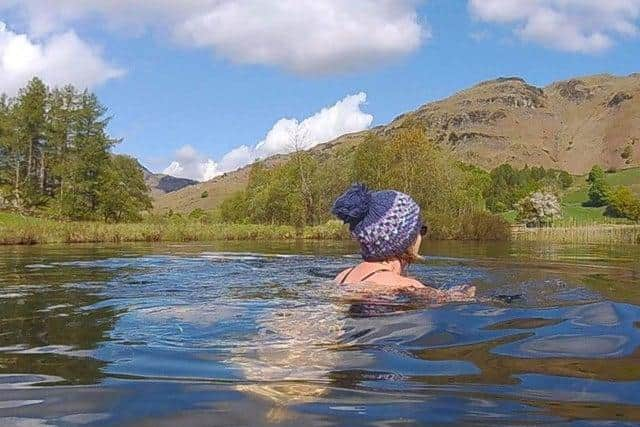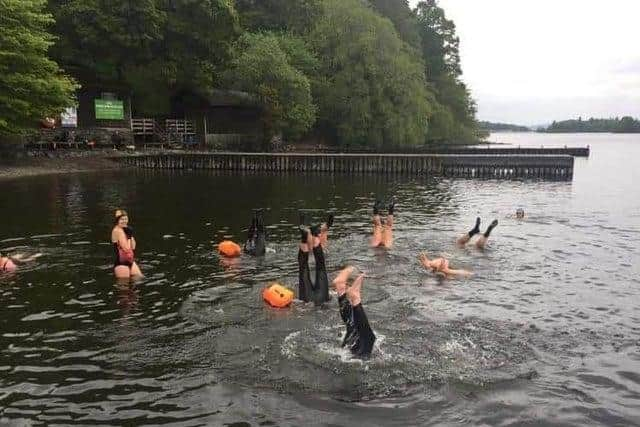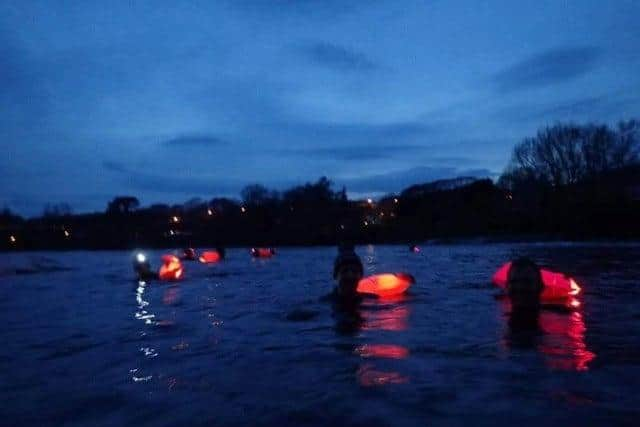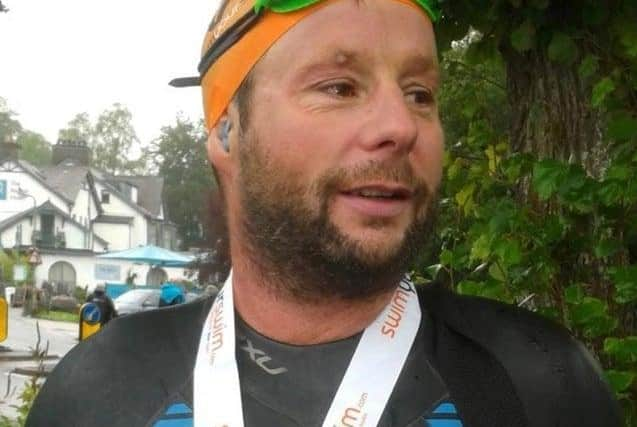Environment Agency will display two-year-old sewage ratings on beaches after COVID disruption
This article contains affiliate links. We may earn a small commission on items purchased through this article, but that does not affect our editorial judgement.
and live on Freeview channel 276
Water quality at designated bathing sites, like Lancashire’s beaches, is regularly tested to ensure it is safe but normal sampling was disrupted by the pandemic.
“Due to the Coronavirus pandemic a limited programme of bathing water sampling took place between July and September 2020,” the Environment Agency said.
Advertisement
Hide AdAdvertisement
Hide Ad“Most bathing waters were not sampled enough to make a fair assessment of bathing water quality during 2020 so a classification was not made at the end of the 2020 season.


“During the 2021 bathing season the classification from 2019 will be displayed at each of the designated bathing waters.”
This means that beach-goers and swimmers will have to rely on water quality ratings from two years ago when deciding whether or not to dip their toes in the sea.
An update on water quality ratings will be made in autumn and regular monitoring will still take place between May and September.
Advertisement
Hide AdAdvertisement
Hide AdThese weekly results can be found on the Environment Agency’s water quality website here.


In 2019-2020 one beach (Bispham) was rated as ‘excellent’ for its water quality.
Six of Lancashire’s ten beaches had ‘good’ water quality and three were found to have only ‘sufficient’ water quality.
During this time, none of Lancashire’s beaches had ‘poor’ water quality.
Advertisement
Hide AdAdvertisement
Hide Ad

This comes after environment minister Rebecca Pow announced an agreement with water companies to provide year-round, real-time data on sewage discharges at bathing sites.
This could allow surfers, swimmers and water users to make informed decisions on where and when they swim, which has not previously been the case.
Analysis by The Guardian found that England’s water companies discharged raw sewage 200, 000 times into rivers during 2019.
By law, sewage must be treated before it is released into waterways and untreated discharges are only permitted in ‘exceptional circumstances’, such as after heavy rain.
Advertisement
Hide AdAdvertisement
Hide Ad

The proposed real-time reporting of discharges would be separate to the Environment Agency’s monitoring of bathing sites such as beaches and many popular swimming spots may not be tested at all.
“Many sites used by wild swimmers will not be tested under the proposals because they are not designated for bathing,” said the Environment Agency.
“Rivers that are not designated as bathing waters are managed for the purpose of protecting fish and wildlife, not people.
“There are no designated bathing waters on the River Lune so no routine bacteriological monitoring will be undertaken here.”
Advertisement
Hide AdAdvertisement
Hide AdThe body noted that there are four official inland bathing waters in the north west and all are located at Windermere.
Wild swimming has become increasingly popular over the last few years due to a number of studies hailing the health benefits of immersing the body in cold water.
According to Swim England, 7.5 million people swam in open water and in outdoor pools in 2019.
A further boom in popularity came as Brits enjoyed ‘staycations’ during the brief interlude between lockdowns last summer.
Advertisement
Hide AdAdvertisement
Hide AdThe staycation trend could be here to stay for summer 2021 as international travel is not allowed until May 17 at the earliest with rule-breakers facing fines of £5,000.
Jon Gibirdi founded the Morecambe and Lancaster Lancashire Open Water Swimmers facebook group, also known as M.A.L.L.O.W.S, and welcomed the announcement of real-time data on sewage discharges.
“Anything that makes the water safer or checks have got to be a good thing for anybody.
“If we hear there’s some contamination in the water we take notice but because we’ve never had any problems it’s not something I’ve ever thought of that much.
Advertisement
Hide AdAdvertisement
Hide Ad“When it has rained heavily here some people have talked about run-off from fields and water being dirty but the good thing is the River Lune, where we swim, becomes unswimmable anyway after heavy rain.”
He said the M.A.L.L.O.W.S group has ballooned in size to 2,700 members and has seen a steady increase during the pandemic.
“Our group was never meant to be this big!
“When I started this group I was swimming on my own in the river, I had moved here from Preston to Morecambe.
“I had no friends and I was quite socially awkward and a bit shy and didn’t know anybody.
Advertisement
Hide AdAdvertisement
Hide Ad“I thought, if I could start a group and get three or four members then I could make friends and find someone to swim with.
“When lockdown hit, because all gyms were shut, the membership just skyrocketed and we couldn’t add people to the group quick enough.
“There are nearly 3,000 members now.”
Jon says that sewage is not the only worry for wild swimmers and keeping everybody safe can be a challenge.
“It is quite difficult,” he said, “I try to put as much information on our group as possible about the sea and tide times and rivers.
Advertisement
Hide AdAdvertisement
Hide Ad“I swim in the sea a lot and it’s just being aware of heavy rain, looking out for submerged objects and the river can be faster in some places than others.
“In the sea it’s knowing when to swim and not to swim, when the water hits rocks it seems to change course and move faster.”
The swimmer says he tries to share his experiences but that people should use their own ‘common sense’ to judge when it is safe to swim.
“It’s difficult because people will ask whether it is safe to swim at a certain time and we can’t really say,” he said.
Advertisement
Hide AdAdvertisement
Hide Ad“If somebody were to follow my advice and then get in trouble in the water for example…”
Jon has now put together a safety video for swimmers who want to take a dip at Morecambe.
Jon encourages new swimmers and experienced swimmers alike to ‘do their homework’ before stepping into the water.
More information about water quality monitoring can be found at this website and more information about M.A.L.L.O.W.S can be found on Facebook.